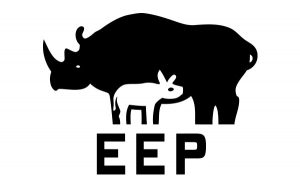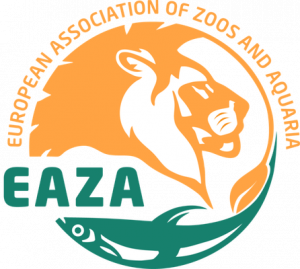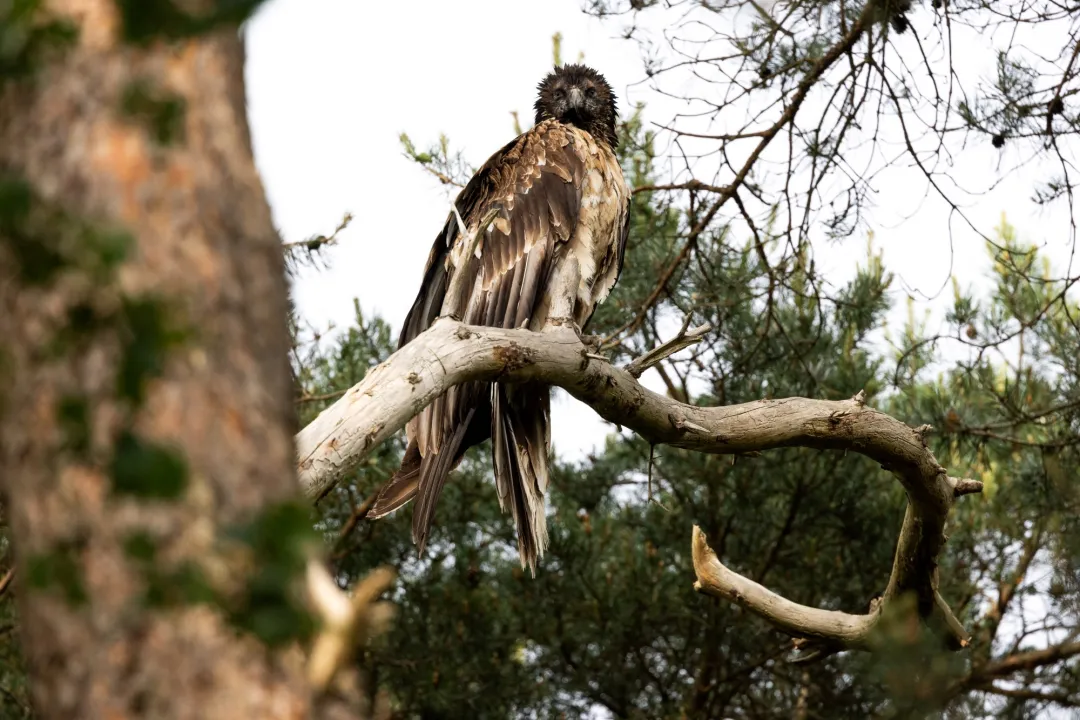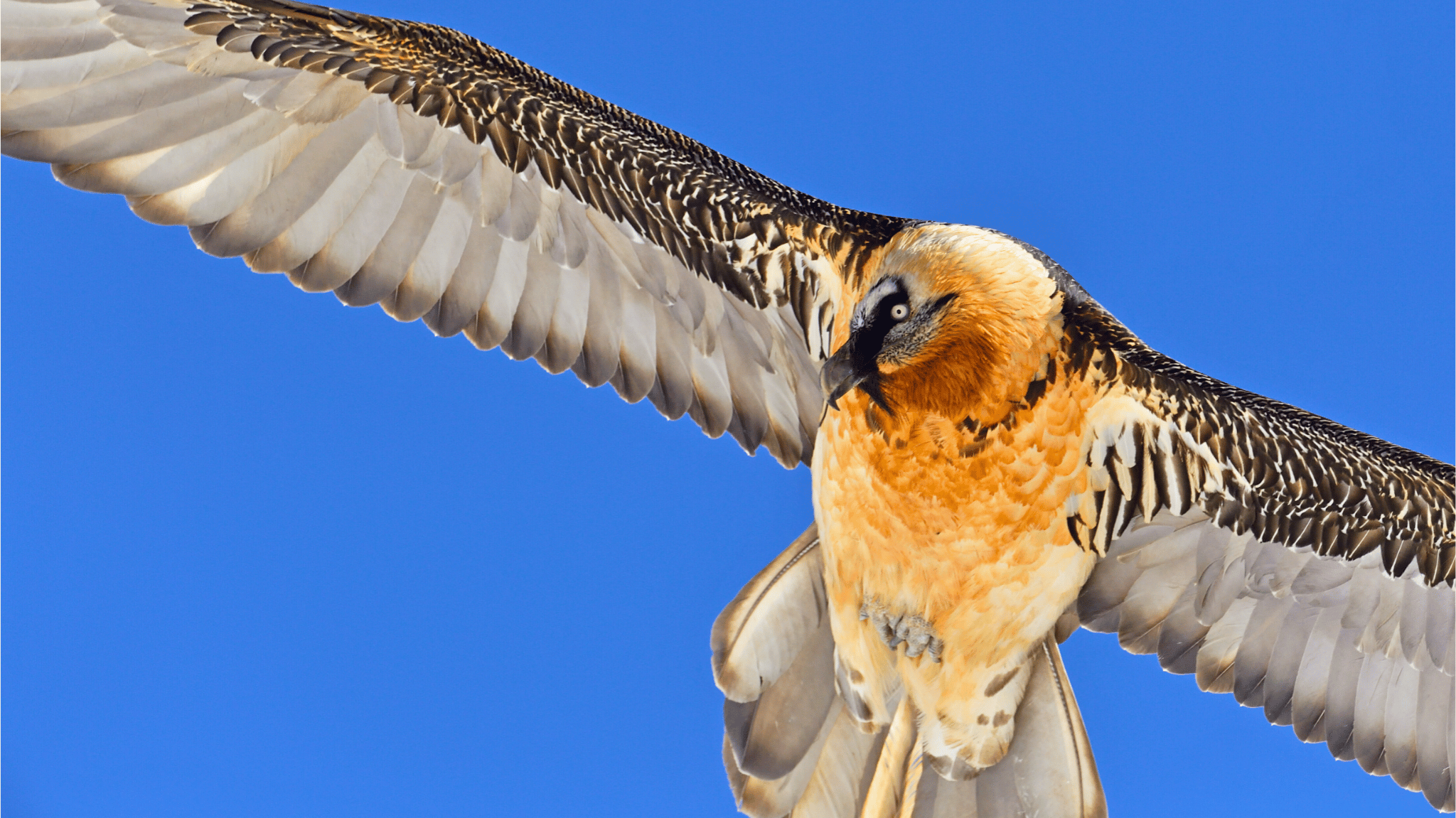
The recent lockdowns of cities or even countries due to COVID-19 is without a doubt negatively impacting the captive breeding of Bearded Vultures this season. Some chicks need to be transferred to other centres to be adopted and raised by Bearded Vultures, otherwise they will need to be reared by humans. However, these travel limitations will not allow us to do these transportations, and in response, the VCF has prepared protocols for the Bearded Vulture Captive Breeding EEP to avoid human imprinting. But, before the major lockdowns and restrictions, we initiated an operation to transfer a Bearded Vulture chick from Torreferrusa to Guadalentín – something that is usually relatively simple to do, but not this time.
Transporting Ryan before coronavirus lockdown in Spain
In the afternoon of Friday 13 March, the staff of the Bearded Vulture Captive Breeding Centre of Guadalentín in Cazorla received a call from Álex Llopis, Bearded Vulture EEP coordinator and VCF’s Captive Breeding Manager who is also responsible for the breeding of this species at Vallcalent Specialised Breeding Centre. The issue was that chick ‘BG1068’ or otherwise nicknamed ‘Ryan’, which hatched on 11 March in the centre of Torreferrusa, needed to be transferred to Guadalentín so that it could be adopted by one of the pairs at the centre. Due to the restrictions imposed there in Catalonia because of the COVID-19 pandemic and the high probability that this autonomous community would be soon isolated, this transfer could not be made at a later date. The issue seemed simple, but nothing could be further from the truth due to the imminent declaration of a state of alarm throughout Spain and because it was necessary to obtain, within a few hours, the relevant permits from the Generalitat and inform the General Management of the Ministry of Agriculture, Livestock, Fisheries and Sustainable Development of the Andalusian Government in order to carry out this action.
Working together to save chick Ryan
This is how the operation “Save chick Ryan” was conceived and everything was set in motion in both communities to achieve our common objective, which was none other than for “Ryan” to arrive as soon as possible to Guadalentín. And it was achieved; at the end of Friday afternoon, the Generalitat issued the permit and the team of Guadalentín together with Torreferrusa already organised the whole operation for Saturday morning.
Two people left at 8:00 on Saturday from Cazorla and two others did the same from Torreferrusa. At approximately 12:30, both expeditions were at a point in the province of Valencia, very close to the border with Albacete. It was there where Marga and Julio (from Guadalentín) received the chick from the hands of Mónica and Raquel (from Torreferrusa); well, not from their hands because at all times a safe distance was maintained between them as the current health situation dictates. The mission was carried out without any disruptions, and according to the companions, through some deserted roads that seemed to be taken from a zombie movie. In spite of everything, Ryan arrived at Guadalentín at around 17:30 in perfect condition and was welcomed by the two people on staff who remain in the centre (Pakillo and José F.) without contact with the outside world to avoid, as far as possible, the functioning of the centre being affected by COVID-19. Ryan is now in the laboratory and in the next few days, the chick will be adopted by one of our breeding pairs.
Let’s hope for a smooth adoption and that a bright future lies ahead for Ryan! This is indeed a challenging time for all of us, and here at the VCF we constantly monitor the situation and react accordingly to ensure the best outcome for the Bearded Vultures in captivity within the EEP. We hope you stay safe!
VCF and Guadalentín
Guadalentín – which houses 27 Bearded Vultures – is the most important Centre within the network as it produces the most chicks every year, and it specialises in adopting and raising chicks from other centres and zoos. The Centre focused on natural fertilisation breeding techniques where the incubation and development of chicks are the responsibility of their parents, minimising human intervention as much as possible. The Center can achieve this by monitoring the behaviour of the vultures and the progress of the breeding process with a modern video surveillance system. Only the hatching of the chicks is done in the lab to be able to assist the chick if necessary.
The VCF recently assumed the management of Guadalentín, on a two year contract from the Junta de Andalucía, thus absorbing a valuable expert team on captive-breeding of this species. The VCF has maintained close links and has been advising their Andalusian colleagues since the start of the reintroduction project in Cazorla and the establishment of Guadalentín – now, by directly managing the captive-breeding Centre, they will maximise their expertise and capacities to do what they know best – to successfully rear Bearded Vulture chicks in captivity to help boost the population of the species in Europe!
Importance of captive breeding

The Vulture Conservation Foundation (VCF) coordinates the Bearded Vulture Captive Breeding Network (EEP) of zoos, specialised breeding centres, recovery centres and private collections. This involves closely working with colleagues across Europe to ensure the best breeding results from the 178 birds within the network.
Captive-breeding of Bearded Vultures is essential for their reintroduction to the wild and it was a critical component to bring back the species to the Alps after their extinction. For the past few decades, the VCF has been releasing captive-bred Bearded Vultures into the wild to reintroduce or reinforce the population of the species across Europe. Between 1986 and 2019, the VCF together with its partners released a total of 323 juvenile Bearded Vultures into the wild, including 227 in the Alps & Pre-Alps, and 63 in Andalucía. In 2019, the VCF and its partners released a total of 22 Bearded Vulture – nine of them in Andalusia – helping boost local populations, and making it the best Bearded Vulture Release Season to date!
To follow the news of the breeding season, follow #BeardedVultureBreedingSeason on Facebook and Twitter.












